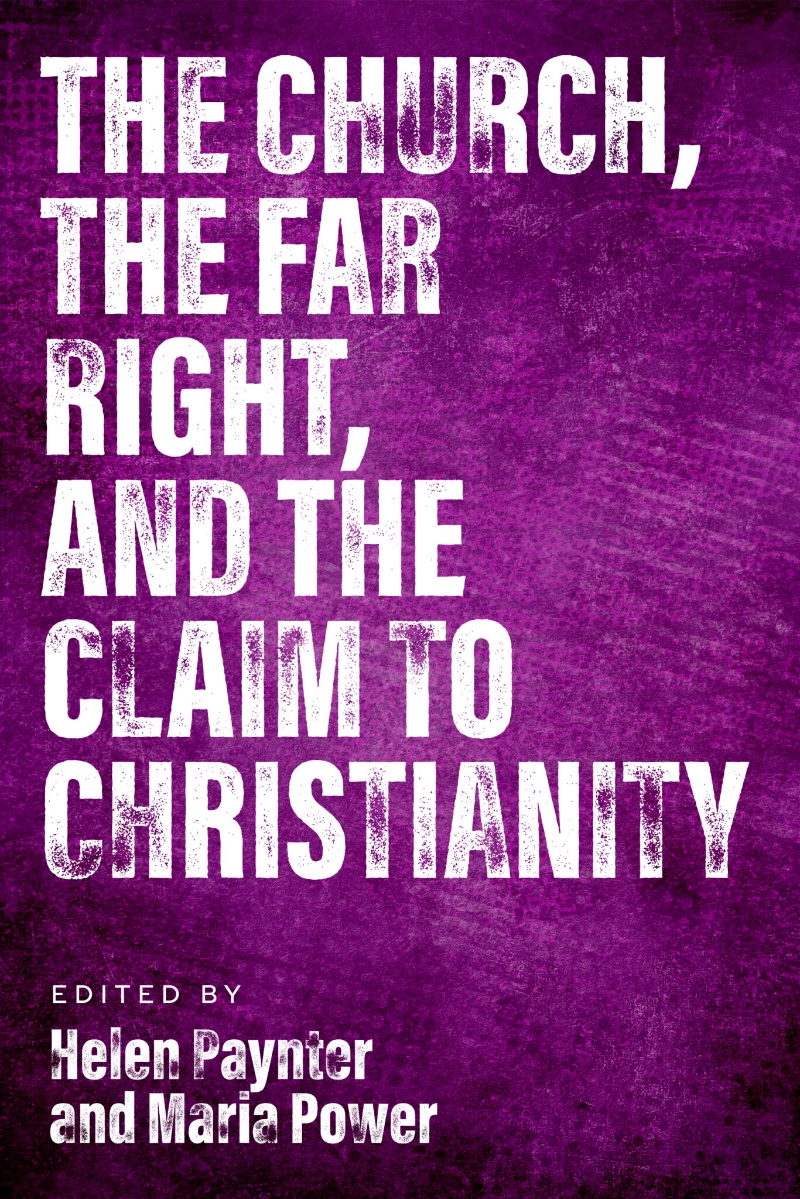The Church, the Far Right and the Claim to Christianity, edited by Helen Paynter and Maria Power
Timely book which charts how rhetoric may be cynically employed by those whose allegiance and values are quite contrary to Christian ones - 'By their fruit you will know them.’
 The Church, the Far Right and the Claim to Christianity
The Church, the Far Right and the Claim to Christianity
Edited by Helen Paynter and Maria Power
SCM Press
ISBN: 978-0334065494
Reviewed by Janet Quarry
How should we Christians react when others, who don’t believe what we believe, also call themselves Christian? I picked up this book because I hoped to find the answer.
A ‘Christian Far Right movement’ (particularly inimical to Muslims) is growing in Europe. Should this ‘deviant’ movement ‘be called Christian or Christianist?’ writes David Gushee in the foreword (p xi.) ‘This has the appeal of separating something like the real, true or normative Christianity from a toxic variant’.
‘But,’ Gushee continues, ‘Who decides what is real, true or normative Christianity?’
This book is not for the faint-hearted and it would probably be helpful to read The Claim to Christianity before beginning because it is referenced throughout. It starts with a chapter on the 2011 terrorist attack in Norway which devolves into a discussion about the theology of the Norwegian Sami indigenous people. This is probably the most difficult of the chapters in the collection. But don’t give up! The book is timely, will make you think, and at the very least the Foreword, Introduction, and Conclusion with its ten recommendations, are well worth looking at and reflecting on.
On Radio 4, on 26/4/25, someone was asked what we call ‘those who go to church absolutely every Sunday’?
Well, apparently, we call them: ‘Very Religious’. I wish they’d gone on to ask: How then do you define ‘a Christian’? I guess they’d have said: ‘Someone like me – a nice person’. Nick Spencer of the thinktank Theos (p134), in the chapter looking at his 2002 research on those who ticked ‘no religion’ in the previous year’s UK Census, says:
‘One participant said: “... the Muslims have got Muhammad, haven’t they? It is very similar to ours.” … Jesus was “ours”, just as Muhammad was “theirs”, despite the fact the interviewees … not only had no meaningful connection to Christianity but were often actively hostile. … other respondents nodded their agreement. Jesus is “ours”.’
These people won’t call themselves ‘Christian’ in the UK Census - but if push came to shove, and to contrast themselves with a different religion, they probably would.
My own thinking goes like this: From Acts 11:26 onwards there has been a defining word for any follower of Christ, and each group goes further to define itself:
Disciple/Christian
Jewish Christian/Gentile believer
Catholic/Orthodox
Protestant/Catholic
Anglican/Baptist (and all denominations further subdivided eg Brethren/Strict Brethren, Baptist Union/FIEC etc)
Low (Evangelical)/ High (Anglo-Catholic) (Charismatic and ‘Non’)
Reformed Evangelical/Liberal (Red Letter Christians?)
And how about: Gun-toting, redneck son-of-a-bitch versus lily-livered, bleeding-heart, liberal egghead communist? (The West Wing, season 1, episode 24)
For a while we seem to be able to exist together and then one group ‘goes too far’ and is first given a defining name (often derisory) before being declared ‘non-Christian’ by the other – usually dominant – group: You are not ‘of the faith’. You cannot take ‘our Communion’.
And each group, if it can be bothered, claims to ‘follow the Bible’. It seems this is inevitable and originated back in Genesis 3. But let us also not forget Paul’s statement in Philippians 1:18: The important thing is that in every way, whether from false motives or true, Christ is preached.
But there is a second strand in this book: How do we walk with, help, support, and protect those who are not Christian and who are persecuted in the name of Christ? This is answered in several chapters, and particularly in the excellent conclusion, and is helpful even if I don’t know how to do what it says.
Nick Spencer (p136 onwards) was again thought-provoking in his discussion of the parable of The Good Samaritan. He finishes with this lesson from the parable: Not so much ‘what will you do now?’ but ‘Who are you prepared to accept help from?’
The reading of this book took me back to a discussion in a seminar at college back in the late 80s. Someone mentioned that Christian missionaries had come back from their service overseas and subsequently lived and died in poverty because their agency hadn’t provided them with a pension. The then Principal, Peter Cotterell, said, ‘By their fruit you shall know them.’ (Matthew 7:16.) We were silenced. What? Those Christian mission agencies – ‘Not Christian’?
‘No,’ he replied firmly. ‘By their fruit you will know them.’
So a person who shoots and bombs people is not a follower of Christ even if they claim to be.
Perhaps, then, I can offer a new category of Christian to those listed above. Let’s all attempt to be ‘Fruitful Christians’. Sadly, this can’t be the last word on the subject as my own fruit (love, joy, peace etc) aren’t particularly bounteous or obvious. But at least it was said by the one I try to follow and, on this subject, it’s all I’ve got – though perhaps with a rather (to me) frightening change?
By my fruit you will know me.
Janet Quarry has been working with Christian missions and charities for over 30 years
Baptist Times, 19/09/2025